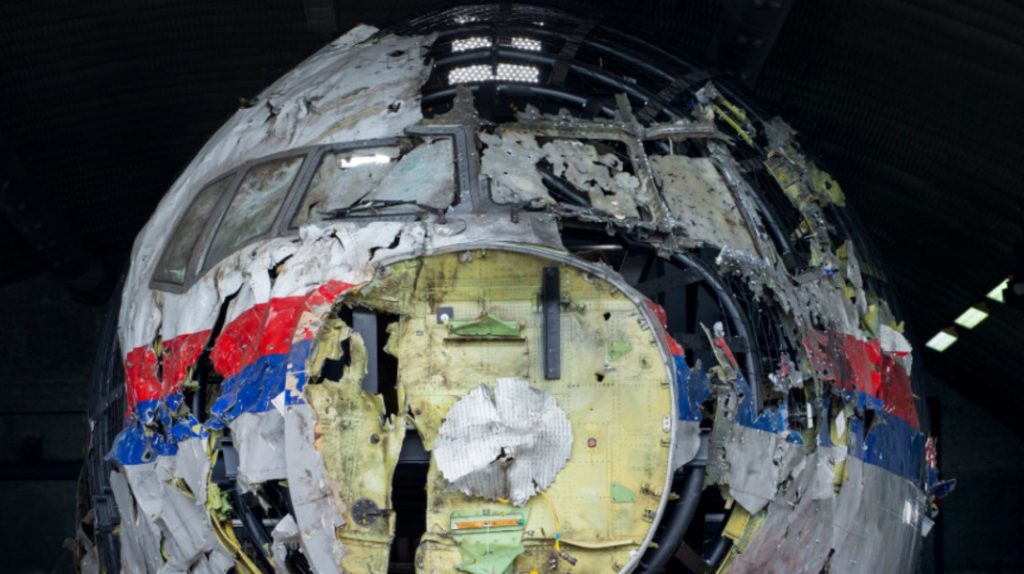On 09 July 2025, the European Court of Human Rights (ECHR) awarded a judgement finding the Russian Federation guilty in a major inter-state case.
The case combined the claims of Ukraine and the Kingdom of the Netherlands against Russia for a significant number of human rights violations during the war from 2014 to the present.
In addition, it was about bringing Russia to justice for the shooting down on 17 July 2014 over Donbas of a civil aircraft (flight MH17).
All 298 people on board the aircraft, most of whom were Dutch nationals, had perished.
This case was submitted and prosecuted by 26 states and one international organisation and third parties, which was unprecedented in the history of the ECtHR.
This case combined four interstate lawsuits against Russia in the ECHR filed by Ukraine and the Netherlands:
1) Ukraine vs Russia — human rights violations during the armed conflict in Donbas, the downing of flight MH17, the use of torture against civilians, etc;
2) Ukraine vs Russia — abduction and illegal transfer of Ukrainian children to Russia in 2014;
3) The Netherlands vs Russia — circumstances and consequences of the shooting down of a civil aircraft (flight MH17);
4) Ukraine vs Russia — human rights violations during the full-scale aggression against Ukraine since 24 February 2022.
The ECHR judges unanimously recognised that their jurisdiction fully extends to four lawsuits against Russia in relation to events that took place before 16 September 2022. That is, before the termination of its membership of the Russian Federation in the Council of Europe.
As noted in the ECtHR decisions, ‘the nature and scale of the hostilities and Russia’s ominous statements regarding Ukrainian statehood, independence and the very right to exist pose a threat to the peaceful coexistence in Europe that has long been taken for granted’. It is also noted that similar rhetoric is often used in relation to Poland, Moldova, and the Baltic States.
The court materials contain information about the massive and systematic nature of human rights violations that took place in the occupied territories of Ukraine before and after 24 February 2022.
These materials include the killing of civilians and prisoners of war, imprisonment, inhuman treatment, torture, systematic practice of eliminating features and signs of Ukrainian identity in the educational sphere, and the forced transfer of Ukrainian children and citizens deep into the occupied territories of Ukraine or to the territory of the Russian Federation.
The ECHR found that the civil aircraft (flight MH17) over Donbas was shot down by a Russian BUK air defence missile system and that Russia is responsible for this, in accordance with Articles 2 and 3 of the European Convention on Human Rights and its protocols.
The ECHR’s conclusion demands that Russia immediately release and safely return all persons deprived of their liberty in the temporarily occupied territories of Ukraine, and therefore, agree to establish an independent international mechanism for the identification of children taken to Russia for the purpose of their further reunification with their families or legal guardians.
The negative aspect of the ECHR judgement is that a clear decision by European institutions on the events in eastern Ukraine was made only 11 years after the start of Russia’s disguised military operations in the Donbas region of Ukraine.
The indecisive reaction and fragmented nature of the positions of European states and international organisations to the events of 2014-2015 in Eastern Ukraine were significant factors that led to Russia’s full-scale aggression against Ukraine in February 2022. This is a clear example that unpunished evil is bound to return and become more terrible.
The ECHR’s decision was also a response to the statements of some European politicians, mass publications in the European media with rhetoric about alleged ‘violations of the rights of ethnic Russians and the Russian-speaking population in Donbas’, ‘inevitable conflict due to forced Ukrainisation’, and ‘civil war in Ukraine’.
It is now quite obvious to assume that such speakers, media outlets, and their employees are 1) full-time agents of Russian influence, or 2) receiving financial or other support from Moscow, or 3) ‘useful idiots’ who are primitively manipulated by Russia.
Russia called the ECHR decision ‘null and void’ and said it would not comply with it.
Nevertheless, the ECHR decision will remain an important historical precedent, especially in the context of the recently established International Special Tribunal for the Crime of Russian Aggression against Ukraine, which is the first instrument of the Council of Europe to bring perpetrators to justice for war crimes.

